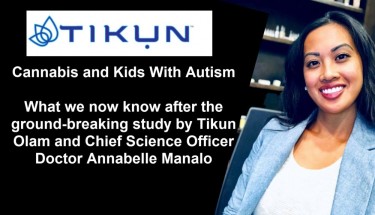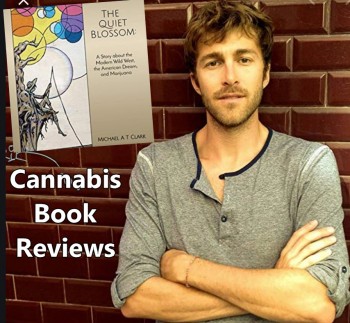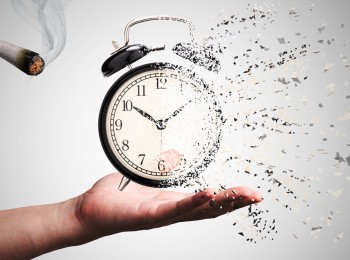
New Study Shows That Cannabis Extracts Are Useful For Autism - Promising Benefits Of CBD For Autism
According to the World Health Organization, 1 in every 100 children have autism.
While the symptoms of autism vary greatly, kids who grow up with autism can struggle with many aspects of life. These include challenges in communication, learning, socialization, and behavior. As a result, this can affect their families, personal relationships, and work. Medical professionals now have a wide range of treatments available for autism, ranging from changing diet and lifestyle to cognitive behavioral therapy, medications, occupational therapy, special education, and much more.
However, families oftentimes need more help than this.
For many years now, cannabis has shown to be promising for the management of autism. In a brand-new study out of Brazil, researchers shared their findings when they studied the impact of plant-based cannabis extracts among 20 participants who have been diagnosed with autism spectrum disorder (ASD). The participants were asked to take the marijuana extracts for a minimum of 6 months orally; these formulations contained either mostly THC or CBD though these were individually formulated.
According to the researchers, the patients and their families experienced improvements in symptoms from 3 up to 21 months of treatment using full-spectrum cannabis extracts (FCE). As the trials went on, they were able to either reduce or completely eliminate dosages of conventional treatments used for autism. They noted that quality of life was improved among patients and their families in 19 out of 20 subjects.
“Our study expands the scientific data demonstrating that clinical use of cannabis extracts is a safe intervention with promising and valuable effects over many core and comorbid aspects of autism that are not achieved by conventional medications… Based on our findings, we propose guidelines for individually tailored dosage regimens that may be adapted to locally available qualified FCEs and guide further clinical trials,” they concluded.
Salon spoke to Dr. Renato Malcher-Lopes, the study’s corresponding author, to take a deeper dive into the findings. Dr. Malcher-Lopes explains that in autism, the wide range of symptoms means that it is incorrect to say that cannabis treats autism outright. Instead, it’s better to state that cannabis can treat some of autism’s core symptoms. According to the study, these core symptoms are “restricted or repetitive behaviors and impairment in language/communication and social skills”.
“There is a collection of symptoms that goes under the umbrella Autism Spectrum Disorder,” Malcher-Lopes adds. “You have the core symptoms, which minimally qualify someone as autistic, but rarely does a person only have the core symptoms. It’s very common for people to have co-morbidities in different levels of severity,” he says. These co-morbidities may include difficulty regulating one’s emotions, consumption of non-edible things, and behavioral problems.
“One thing that’s important, we make sure in our protocol that everybody receives a lot of CBD,” Dr. Malcher-Lopes says. “Why is that? Because CBD is an anti-inflammatory substance. It also has some effects that reduce the excessive synaptic activation, and this is good because it creates some kind of ceiling for the level of hyper-activation the nervous system might have. And by doing that you reduce the risk of seizures, the risk of anxiety, hyper-activity, etc.”
He goes on to warn against the use of high THC formulations among those with autism, because it has been shown to be detrimental. “If you use THC alone, THC has an effect that CBD does not have, which is to cause euphoria,” he explains. “If you start increasing the dose, you’ll increase the dose of euphoria. But if you then keep increasing it, you’ll feel very anxious.”
That said, there have been other studies that have found success in treating certain symptoms of autism with high-THC cannabis formulations.
Other Studies Share Similar Findings
In 2022, a study conducted in Israel assessed the effect of CBD-rich marijuana on adolescents with ASD. The Israeli investigators worked on a sample of 82 young subjects with autism spectrum disorder, whose ages ranged from 5 to 25 years old. They were given whole-plant marijuana extracts with a 20:1 CBD:THC ratio over 6 months. Additionally, they used various types of standardized clinical tests to measure patients’ symptoms before and right after the treatment.
“Our results revealed significant improvements in the overall .. scores of the ASD patients who completed the 6-month treatment protocol with CBD-rich cannabis. Overall changes were mostly driven by improvements in social communication skills,” wrote the researchers.
“These findings suggest that the treatment with CBD-rich medicinal cannabis can lead to significant improvements in social communication skills of some ASD individuals, particularly those with more severe symptoms,” the authors wrote. “These positive findings motivate further double-blind placebo-controlled studies for determining the efficacy of treatment with specific cannabis strains and/or synthetic cannabinoids.”
What About THC?
Another 2022 study conducted by British researchers from the Imperial College in London sought out to analyze the safety and impact of marijuana in a sample of adults with autism. The subjects’ average age was 32, and they were all part of the UK Medical Cannabis Registry. For the study, they were asked to either inhale high THC, low CBD marijuana or consume it sublingually for up to 6 months.
Following the culmination of the study period, the researchers reported that the patients saw improvements in autistic symptoms. They also found that the patients were able to decrease their dependence on prescription drugs. “In this first published experience of clinical outcomes in adult patients with ASD treated with CBMPs [cannabis-based medicinal products], there were associated improvements in general health-related quality of life, in addition to sleep and anxiety-specific outcomes,” they wrote.
Conclusion
Research on the efficacy of cannabis, both CBD and THC, for autism is certainly growing. The interest among the medical and scientific community is justified considering how promising the results have been, especially given that marijuana is a natural medication that can complement other existing therapies for autism. We need much more research to standardize medications specifically for autistic patients, so we hope for more progress on this front.






